Victor Krummenacher is a founding member and bass player for the eclectic alternative rock band Camper Van Beethoven. Their first album Telephone Free Landslide Victory came out in 1985, and includes such classic songs as “The Day That Lassie Went to the Moon”, “Where the Hell is Bill?”, the Black Flag cover “Wasted”, and “Take the Skinheads Bowling”. They released four more acclaimed albums before burning out: the independently-released II & III and self-titled Camper Van Beethoven, and the major-label albums Our Beloved Revolutionary Sweetheart and Key Lime Pie. The band re-formed at the end of the end of the 1990’s, and has released several more albums, with a new one coming out in January 2013. Krummenacher has also been in the bands Monks of Doom and Cracker.
The following phone interview took place on 8/24/12, and was for a preview article for Camper Van Beethoven’s 9/10/12 concert in Ventura, California. (Photo: Jason Thrasher)
Jeff Moehlis: I work at UC Santa Barbara, and I live in Goleta. With that in mind, do you want to apologize for the Camper Van Beethoven song “(Don’t You Go To) Goleta”?
Victor Krummenacher: Do I want to apologize?
JM: Yeah!
VK: Actually, I did not write the lyrics to that song, so I can’t really apologize for it. Maybe that’s a chickenshit answer, I’m not really sure.
No, actually, I don’t really care to apologize for that. You know, I went to [UC] Santa Cruz, so I’ll maintain a rivalry. I think rivalry is healthy.
JM: Fair enough. Any chance that’ll be on the setlist in Ventura?
VK: No, it’s really been a long time since we played that. I think we’re in a different phase these days. I don’t know, I think we’re just a little more serious than we were then. Not entirely. It’s hard for us to be completely serious. But I think we’re a little more serious.
JM: So, what can we look forward to at the show in Ventura?
VK: Well, we just finished our first record [to be called La Costa Perdida] in eight years, so you can look forward to some new songs. And you can look forward to us being a little loose, because I don’t think we’ve actually played since February, so we’ll be kind of getting our sea legs back on. I mean, I’ve been playing with Cracker off and on this summer, but we haven’t done any Camper dates in a while. It’ll be real rock ‘n’ roll. We’re not afraid to fall down in front of people. I don’t think we’ve ever been afraid of doing that.
JM: When do you expect the new record to come out?
VK: January 22, 2013.
JM: And how would you compare that record to the other albums you guys have done?
VK: This is an interesting record. First of all, it’s just really maturely played, which may sound boring, but it’s not actually. We play a lot more confidently and a little more reserved, a little more stately in how it’s played and how it’s articulated. It just kind of rolls off the fingers in a more adult fashion. But what we do musically is still unlike anybody else. There’s a natural chemistry between us that I don’t think resembles any other bands I can think of. It’s just a weird group of people and such a weird group of influences.
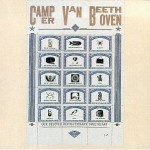
And then above and beyond that, I think it touches on the strengths of the last three records of the first run, which is to say the record called Camper Van Beethoven and then the two Virgin records. Like the lead track, I think, in some ways is really reminiscent of many things we were doing in Our Beloved Revolutionary Sweetheart, but there’s other things on there that are really reminiscent of Key Lime Pie, and then again there’s other things that are reminiscent of the tape collage work we did back in 1986.
It’s not a concept record. We did three records since we got back together. One was kind of a retrospective where we basically took old tapes and manipulated them [Camper Van Beethoven Is Dead: Long Live Camper Van Beethoven]. That was the concept of that one. And then the next concept was Tusk, which was a complete cover of the Fleetwood Mac record that some of us love and some of us hate, so that was an interesting effort. Then the last record was basically a rock opera, a futuristic sci-fi odyssey. This is none that. This is just a collection of songs. But it was written with the band sitting in a room for a week, and we wrote maybe twenty or thirty songs and just picked from those. It really worked out well.
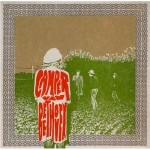
JM: Going way back, I’m quite fond of the first album you guys did, Telephone Free Landslide Victory. Do you have any reflections on that particular album?
VK: Rarely do I listen to my own stuff, but when I do listen to it… you know, I guess they say “lightning in a bottle” is the way to describe certain things that just kind of happen that are unexpected and spontaneous and very real. I think that record is a really good example of something that nobody anticipated being anything other than what it was. We were just making a record for a friend. We did it in four days – two days of recording and two days of mixing. It’s 17 songs or something. It’s basically about everything we were playing at the time. We just threw it in there, and had no clue that it would become this culty kind of thing that people like R.E.M. would be interested in, and basically it secured us a place.
You know, Camper was a joke band. Camper was the band that played at parties. We all had serious bands that we were trying to play with at the time. I think we were serious about making the record, we thought we were a pretty cool, interesting, weird garage band. But I don’t think we thought it would be what it was. Which is good – there were no expectations going into it. I think that’s when the best stuff is made, when you just don’t have an expectation. Expectation is really kind of the enemy of rock ‘n’ roll. Once you get too thinky about things it’s just not good.
JM: So it’s fair to say you guys weren’t expecting to be playing together thirty years after you started?
VK: Fuck no. It blows my mind that we’re actually approaching our thirtieth year, and we’re still playing. That’s really not anything I expected.
JM: A question related to that first album. Did you ever figure out “Where the Hell is Bill?”
VK: I think I still know where Bill is. Last I checked he was in Portland. No, we never lost track.
JM: Do you have any good stories you’re willing to share from the early tours?
VK: I think it was like it was for most bands. I mean, I talk to kids now and they have no concept of how you would possibly get from one point in the country to the other without a cellphone. It was very primitive. It was us in an eight-year-old Dodge van that had loose steering so it was a little scary on the road. We had a bed in the back and a bunch of small amps. We never had a great big backline, everything was just tucked under the bed. We used to drive around and just play, and go out for weeks at a time. In some ways it’s not that much different now, except we’re older, and I don’t think we drink like we used to or anything like that.
All I can say that it was at a point in time when you could do it and make it work. I don’t know that that’s really something that you can do quite as easily. And also, there was a really coherent scene at the time. You know everything that people now do for distraction, like videogames and computers, really didn’t exist then. If you were young and you wanted to do something, you went out to see a band. You might, at the time, go out to dance, but even that wasn’t really starting to happen then the way it is now. It was a different time, and I think we were just lucky to be able to make it work when we did.
JM: How did the songs and arrangements typically come together, or was there a typical?
VK: There was no typical, not for Camper. It can be a very singular songwriting effort. David [Lowery]’s led the charge on that a lot, obviously, but there have been other songs that have been Jonathan [Segel]’s or mine. It just kind of depends. For a lot of what people call the classic Camper stuff, David might have a idea and a sketch, and we’d just kind of bash it out. That’s maybe more what we did on this last record. It just depends. Sometimes it’s very collaborative, sometimes it’s not. There’s no rule. Camper is not a very rule oriented band [laughs]. It’s a pretty chaotic affair. We’ve got four really strong-minded, really opinionated people working together the best they can, in the core of the band. Sometimes it works brilliantly.
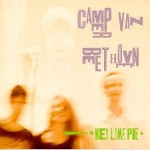
JM: Your first few records were independent releases, and then you went to Virgin Records. What was the major label experience like for you guys?
VK: You know, for us, I don’t know. I think it just kind of fucked up everything. Camper just kind of melted down after a while. I don’t think that’s the fault of the label. It’s just our collective inability to get it all together. We were all very young. I mean, I was 25 when the band broke up the first time. I think sometimes you learn by failure. That’s the good side of it. Did we have trouble with the label? Maybe sometimes. But we had as many problems with the Indie labels as Virgin. All record labels are the same to me.
This is just me. There are different points of view in the band. You know, this is my art. I take the art part very seriously, and it’s very precious to me. I just don’t work with a label in mind. That doesn’t work for me. I try not to kowtow to any kind of perceived idea of what you’re supposed to do. That does not work for me. I’ve made records doing that, and they’re not the best records I’ve made. Whether I’m working with the band or another situation, the best records are when we just go in to make a great record.
There’s a lot of contention about labels in some people’s minds. I think, really, in truth, nobody I know is really on a label any more anyway. You just make a record and you might get somebody to distribute it for you. That, in itself, is good. Trying to get an audience is difficult, because the onus is all on the artist if there’s no investment. If you had a good label relationship and you were able to maintain a good point of view on the business side, having the backing of somebody like Warner Brothers or somebody like that could in fact be a really great thing for a band. It allows you to pursue a larger audience.
But that whole kind of label situation, where labels invested in people and expected a development arch, is long gone. I don’t know what to say, other than that things change. You just have to kind of roll with it. But there was a period of time where you could be a young band and get some investment from the company, and develop yourself and turn into a larger act, and make it work.
JM: Could you comment on why Camper Van Beethoven broke up at the end of the ’80’s, and what brought you guys back together?
VK: You know, we broke up because we couldn’t get along, and we got back together because we could get along.
JM: [laughs]
VK: I mean, that’s true. I think that’s as accurate a description as we could ever get. Dave likes to say that the band didn’t so much break up as dissolve like a urinal cake. That’s kind of his stock quote. I don’t know if I feel that’s entirely true. There was a lot of contention and a lot of argument at the time. But that was a long time ago, and it’s all really pretty much, for me, water under the bridge. If you don’t learn to get past things, then you just wind up being stuck, and I’m not a fan of being stuck in any sort of way.
If you want to be in a band, it’s not an easy job, it’s not an easy thing. If you come from a slightly dysfunctional family, you’ll find it just as difficult. If you’re going to do it for a long time, it’s really not for the timid. You have to forgive and move on, and accept the fact that a band is a compromise and nobody’s perfect. If you can get that part down, and you can be OK with it emotionally, you stand a good chance of being alright. A band is an imperfect solution. If you don’t like it, then you should be a solo artist.
JM: I know you’ve played in several other bands. What is unique about the chemistry of Camper Van Beethoven?
VK: There’s a power to Camper playing together that’s borne out of the fact that we’ve played together so long, and we learned how to play professionally together. When we’re at our best, that’s the thing that comes across.
I’ve played with other musicians who are superb, and I get a lot of power, a similar kind of power playing with them. But it’s not the same, because we don’t quite read each other’s minds as much.
There’s kind of two different ways, for me, of working. I wanted to work with great musicians, and look for the curveballs and play it like it’s a good game of baseball. And really listen to each other, and just walk on that tightrope. I really do love doing that. In Camper, I don’t have to walk the tightrope quite as much because I know what’s coming. But, because I know what’s coming, you get a certain power from that that’s not the same, but it kind of frees your mind. You get into very specific aspects of what you’re doing. I think there’s a lot of power there, that’s based on the length of time we were together.
JM: What advice would you give to an aspiring musician?
VK: One, make sure you’ve got something else that you can do that you can make money doing, at all times. Two, be realistic about what music is to people these days, and understand it’s a hard game, and that you might not get in fact what you want. Protect your music and your muse at all costs. Don’t give it away. The only way you’re going to make anything unique and soulful is to be completely true to what your vision is. Maybe it’ll translate, and maybe it won’t, but if you don’t do that then I think you don’t have a chance. Don’t do it just to do something else. Do it because you need to do it.
JM: So you guys have the new album coming out. What are your plans for the near term? You’re touring in support of that?
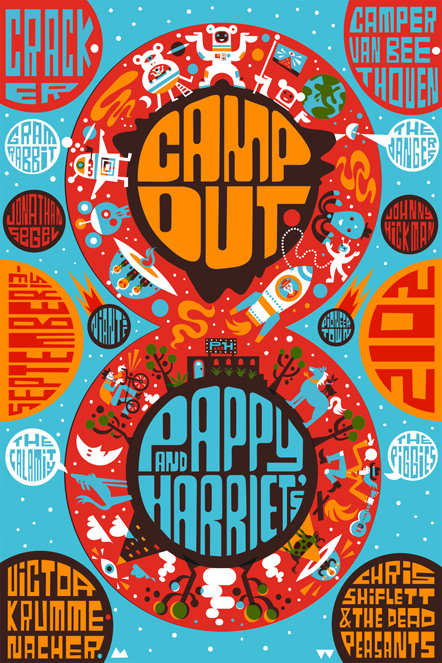
VK: We’ll be doing the festival we do every fall out in Pioneertown, which is in Joshua Tree, called the Campout. This is the eighth year that we’ve done that. So this is a run that we always do. It’s been an annual run for eight years.
The long-term plans are that the record comes out in January. We’ve got a run that we always do on the East Coast, and we’ll tie that in.
Camper Van Beethoven is a bunch of people who have day jobs, for the most part. So we will do a long three weekends, and maybe weeklong runs until the summer. And then come the summer of next year, my hope is that I can take a hiatus from my job and that we’ll have have a good package tour. It depends on what the response to the record is. I’m proud of the record, and I think it’s a really good effort on our part.
And we’ll celebrate the fact that it’ll be our thirtieth anniversary in 2013. There will be a lot of stuff. I think there will be some reissues.
I think Camper changed a lot of things in music, in a good way. And I don’t necessarily know that we’ve entirely gotten our due. I’d like to change that a little bit, if we can right now. Maybe get a few more people to take notice, and maybe get the people who’ve taken notice already to listen to this record and go, “Wow, they’re still really good.” That’s it, pretty simple.
JM: Do you want to set the record straight on anything about Camper Van Beethoven?
VK: There are silly misconceptions about bands. I don’t even know where to begin. It’s a fan’s job to have a misconception about a band, in a certain way. In some ways, if you set the record straight on everything you kind of take the mystery and romance out of it. So the answer’s “No”. They can think whatever they want about us.

JM: When I was preparing for this interview, I noticed that you worked at the San Francisco Bay Guardian.
VK: Yeah, I was the Art Director for six years, from 1999 to 2005.
JM: I lived in Berkeley from 1993 to 2000, and read the Guardian religiously.
VK: Then you saw my work. That’s what I do. I push boxes around on a screen until it looks good.
JM: So are you doing similar work now as your “day job”?
VK: Yeah, I’m a paid designer for Wired Magazine. And I do operations management, and I do freelance, things like ad design. It depends. I’m a graphic designer and a project manager. I can art direct and I can take a group of people and come up with a nice plan to track the workflow and make it happen. I’m really experienced in editorial context. It’s really compatible with having a second career.
JM: Where am I reaching you at?
VK: I am in my home office right now in San Francisco.

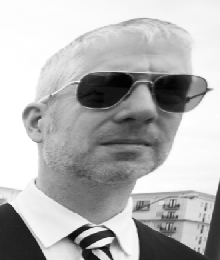
Discussion
No comments for “Interview: Victor Krummenacher”